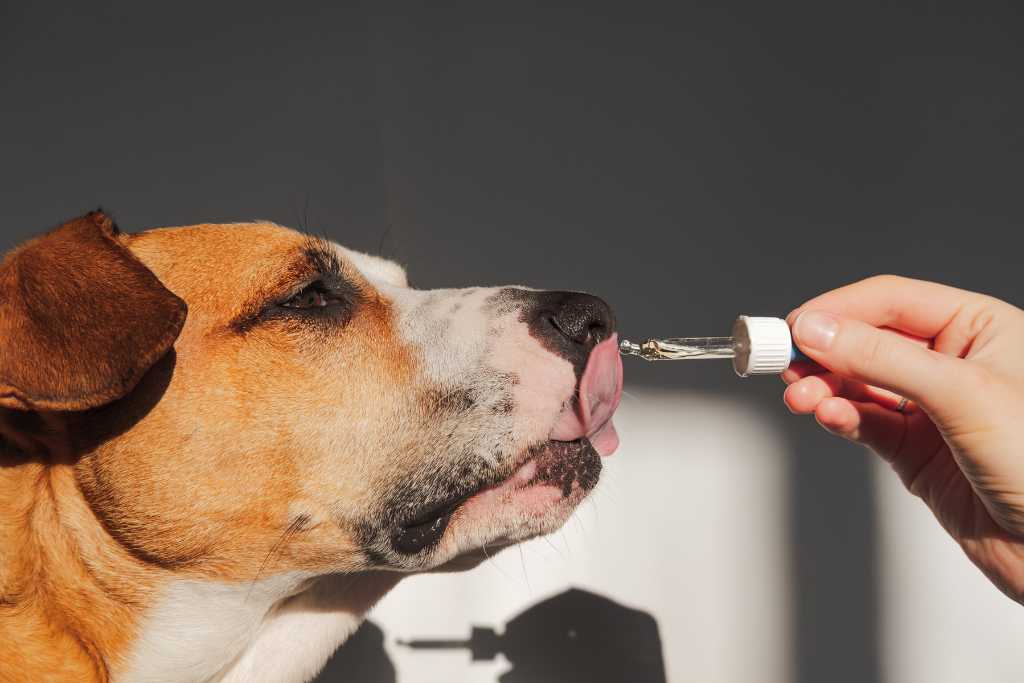MORE TO SHIP FREE 🚚
NICE. SHIPPING IS FREE 🎉
MORE TO REDEEM GIFT 🎁
YAY. REDEEM A FREE GIFT 🥳
YOUR CART IS EMPTY. SHOP NOW.
We strive to provide the best care for our furry companions, ensuring they lead healthy and happy lives. One aspect of pet care that often comes under scrutiny is the use of dog supplements. According to a 2006 study in the Journal of the American Veterinary Medical Association, the most commonly administered dog supplements include multivitamins, those designed to support arthritic joints, and fatty acids aimed at reducing shedding and enhancing coat lustre. Pet parents might also opt for probiotics to address gastrointestinal issues or antioxidants to counteract ageing-related concerns like cognitive dysfunction.
But, are pet supplements necessary, or are they potentially harmful? In this article, we will delve into the world of dog supplements, addressing concerns about their necessity, benefits and potential dangers, and how to choose the right supplement for your furry kids.

Dog supplements are additional dietary products designed to provide specific nutrients, vitamins, minerals, or other beneficial substances to dogs. These supplements are intended to complement a dog's regular diet and can address various health concerns or support overall well-being. Dog supplements come in various forms, including tablets, capsules, liquids, powders, and treats. Here are some common types of dog supplements and their purposes:
Multivitamins
These supplements contain a combination of vitamins and minerals to ensure dogs receive a complete and balanced range of essential nutrients. The Zesty Paws 8-in-1 Bites Multivitamin Supplements for Dogs is a popular choice among pet owners seeking a comprehensive and convenient solution to ensure their dogs receive a well-rounded nutritional boost. This multivitamin formula is designed to provide a complete and balanced range of essential nutrients to support various aspects of a dog's health. The 8-in-1 formula addresses key bodily functions, making it a versatile supplement for overall well-being.
Fatty Acid or Fish Oil Supplements
Fatty acid supplements for dogs often include omega-3 and sometimes omega-6 fatty acids to support various aspects of canine health. Both omega-3 and omega-6 fatty acids are essential for dogs, meaning they must be obtained through their diet as their bodies cannot produce these fatty acids independently. Omega-3 fatty acids, commonly sourced from fish oil (such as from salmon, mackerel, or sardines), have several health benefits for dogs. These benefits include enhancing a dog's skin and coat health, reducing shedding, and providing anti-inflammatory benefits. When sourcing fish oil, supplement quality matters. Pure fish oil, sourced from high-quality fish, is more likely to be free from contaminants such as heavy metals and pollutants. The Zeal New Zealand Hoki Fish Oil Dog Supplement is one of the few fish oils in the world that is totally pure. It is extracted from Hoki fish, wild caught in deep, cold & pristine waters off the coast of the South Island of New Zealand, some of the cleanest oceans on the planet.

Probiotics
These supplements contain beneficial bacteria that support a healthy balance of gut flora, promoting good digestion and potentially alleviating gastrointestinal issues. The world of probiotics for dogs indeed offers a variety of options designed for different purposes. The NaturVet Evolutions Probiotic + Superfoods Soft Chew Dog Supplement is formulated for ongoing gut health maintenance. These types of supplements often contain a blend of probiotics (beneficial bacteria), prebiotics (substances that promote the growth of beneficial bacteria), and sometimes additional ingredients like superfoods to support overall digestive well-being.
On the other hand, products like the Furment Postbiotics PLUS Gel With Kaolin for Dogs & Cats is designed to address acute digestive disorders such as diarrhoea. This type of supplement may contain postbiotics, which are metabolic byproducts of probiotics that can have beneficial effects on gut health. Navigating the world of probiotics can indeed be confusing, and the specific needs of a dog can vary. Seeking advice from a veterinarian is a wise approach, especially when dealing with digestive issues or considering adding a supplement to your dog's routine. A veterinarian can assess your dog's health, identify the cause of any digestive problems, and recommend the most suitable probiotic or digestive supplement for your pup's condition.
Antioxidants
Antioxidant supplements may include vitamins like A, C, and E, as well as other compounds that help counteract the effects of ageing, support the immune system, and protect cells from oxidative stress. Standalone antioxidant products for pets are indeed less common. Many manufacturers choose to incorporate antioxidants into their multivitamin formulations or other specialised supplements rather than offering them as standalone products.
Digestive Enzymes
Designed to aid in the digestion and absorption of nutrients, digestive enzyme supplements can be beneficial for dogs with digestive problems. Here’s a recommended digestive enzymes supplement to aid in the digestion and absorption of essential nutrients - Naturvet Digestive Enzymes Pre & Probiotics Soft Chew Dog Supplement. The supplement is a comprehensive digestive health product designed to support dogs in the digestion and absorption of essential nutrients. As with most digestive enzymes formulas, the inclusion of prebiotics, and probiotics in one supplement provides a holistic approach to promoting a healthy digestive system in dogs.
Specialised Nutritional Supplements
Some supplements are formulated to address specific health concerns such as skin allergies, urinary tract health, joint support supplements or cognitive function in senior dogs.

Many dog owners wonder if their pets truly need supplements. In general, well-balanced and high-quality dog food should provide all the essential nutrients your pet requires. However, certain situations may warrant the use of supplements. For example, older dogs, puppies, pregnant or lactating females, and dogs with specific health conditions may benefit from additional nutritional support.
Most excerpts would agree that dogs on a high-quality diet do not need supplements unless they have specific health conditions that can benefit from supplementation. Situations where supplements may be necessary: Senior dogs may benefit from supplements to address age-related issues like poor digestion or arthritis. Dogs diagnosed with certain medical conditions may need specific supplements to support their health. Malnourished dogs (e.g. strays) may need supplements to address nutritional deficiencies. If a dog is diagnosed with a particular deficiency, the veterinarian might recommend a single supplement targeting that specific deficiency.
Is there any danger in giving my dog supplements?
While supplements can offer benefits, it's crucial to be aware of potential dangers. Over-supplementing certain vitamins and minerals can lead to toxicity. For instance, an excess of vitamin A can be harmful to dogs. It's essential to follow recommended dosage guidelines to avoid overdosing your dog. Avoid giving your dog human supplements, as they may contain ingredients that are toxic to dogs.
When unsure, please consult with your vet to determine the appropriate supplement type and dosage for your dog's specific needs. Your dog’s vet can assess his overall health, identify specific nutritional needs, and recommend supplements tailored to your dog's requirements. Additionally, they can monitor your dog for potential side effects or interactions with other medications.
How should I choose a supplement?
Choosing the right supplement involves careful consideration of your dog's diet, health, age, and any existing conditions. Look for supplements from reputable brands that undergo rigorous testing for quality and safety. Always opt for products formulated for dogs and follow the recommended dosage instructions.
How do I know whether a supplement is effective?
Effectively evaluating the impact of a dog supplement involves keen observation of the dog’s appearance and behaviour. For supplements addressing skin concerns, improvements in coat and skin quality should be apparent over time. In cases related to joint health, such as arthritis, a positive response may manifest in the dog's ability to rise more swiftly. Behavioural changes, including increased vitality and a reduction in signs of discomfort, can further indicate the supplement's efficacy. Blood test results may serve as a health-specific metric for assessing effectiveness.
However, it's important to note that when supplements are introduced alongside other changes, distinguishing the specific impact of each element becomes more challenging. Regular communication with both the pet owner and the veterinarian facilitates a comprehensive assessment, ensuring that the chosen supplement aligns with the dog's evolving health needs.

To sum it up, not all dogs need supplements, but they can be pretty helpful in certain cases. Just be careful when adding them to your dog's routine and think about the pros and cons. Make sure to chat with your vet before giving your pup any new supplements, especially if he is diagnosed with a medical condition, and is on long-term medication. Pick good-quality products, and keep an eye on your dog's health for any unexpected reactions. The right supplement can really boost your dog's overall health and make for a longer, happier life.

Comments will be approved before showing up.
A practical guide to dog anxiety. Learn how stress and anxiety affect dogs, how to spot the signs, and explore...
Learn the causes of dog itchy paws (allergies, infections, cracks) and effective home remedies including soaks, balms, and diet changes...
Ever seen your dog basking in the sun? It may look like laziness, but dogs love sunbathing for several fascinating...



